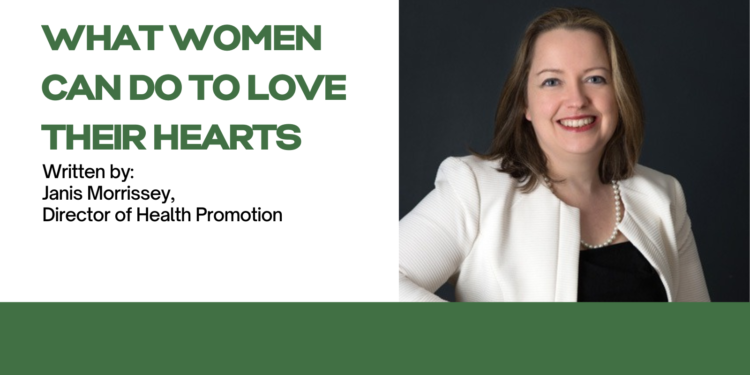Written by Janis Morrissey, Director of Health Promotion, Information and Training, Irish Heart Foundation
In recent years, there has been a welcome focus in the national conversation around women’s health issues, be it reproductive health, menopause, or cancer screening. However, there has been a glaring gap. One in four women dies from heart disease and stroke each year – the same as men and, incredibly, six times more than die from breast cancer. That’s over 4,000 mothers, daughters, and sisters each year in Ireland. There is a false belief that cardiovascular disease (CVD) is a man’s disease but there are many female-specific factors that affect a woman’s risk, including menopause and hypertensive disorders of pregnancy. However, the good news is that 80% of premature heart disease and stroke is preventable through healthy lifestyles.
But too many women aren’t aware of these facts and many health professionals are also missing these important messages.
According to the Lancet Women and Cardiovascular Disease Commission, heart disease and stroke in women has been underresearched, under-diagnosed, and under-treated.
• under-researched (women have been left out of clinical trials)
• under-diagnosed (women often present with more unusual signs of CVD and can receive an incorrect diagnosis. Rather than the classic version of a heart attack where someone is seen clutching their chest, the symptoms of a heart attack in women can be quite vague making it hard to diagnose. They can include nausea, tiredness, shortness of breath, back pain or tightness in the jaw rather than the more familiar scenario of a crushing pain in the chest that shoots down one arm).
• under-treated (women can be under-treated or treatment can be delayed if they are under-diagnosed. Many treatments are made for men and not adequately researched in women).
The combined effects place women at a distinct disadvantage. While research and healthcare systems must evolve to address these gender-specific challenges, and economic disparities as a significant driver of inequality must be tackled, public awareness also plays a pivotal role. The Irish Heart Foundation has developed the Her Heart Matters campaign to help women seek help earlier, advocate for themselves, and potentially save lives.
Most women already know what makes a healthy lifestyle, but the many demands of modern life can get in the way. IPSOS polling conducted for the Irish Heart Foundation found that almost one-third (30%) of women say they do not have enough time each day to focus on their health. However, this September the Irish Heart Foundation is calling on women to put themselves first and make their heart health a priority. It’s not just up to women themselves, so we are also calling on anyone with a woman in their lives to talk, share and empower women to look after their heart health.
Mindset
Getting into the right frame of mind is essential for change. You need to feel ready and have clear, powerful reasons for making a change. As part of the Her Heart Matters campaign, the Irish Heart Foundation has created a free Self-Care and Wellbeing Journal to support women to reflect on their lifestyle habits and prepare for meaningful change.
Stress
While stress is a normal part of life, it can be negative when it starts to impact day to day tasks. Many women are juggling multiple demands, and this can be particularly challenging during menopause. Try to keep a regular sleep routine, be physically active and stay connected to friends and family. If you are struggling, contact your GP.
Physical Activity
Regular physical activity is one of the greatest tools for preventing heart disease and stroke as well as helping to reduce some menopause symptoms. Getting at least 150 minutes a week of moderate intensity activity is recommended for good health. This can be broken down into three 10 minutes sessions. Try to add muscle strengthening exercises too.
Nourishing your Heart
Research shows that a Mediterranean-style diet can help to reduce heart disease and stroke and help manage menopause symptoms. Like the Irish Food Pyramid, a Mediterranean-style diet is based around fruit and vegetables, whole grains, beans and other pulses, nuts, and seeds. It includes some olive oil, fish, seafood, and poultry, and is low in sugar, salt, processed foods, and red meat.
Start the Conversation
Be part of the movement of women and men who want to see change and protect all women from one of Ireland’s biggest killers. Talk with your sisters, mothers, daughters, and friends, share the campaign with them, and empower them to make changes
For information and practical support, visit irishheart.ie








